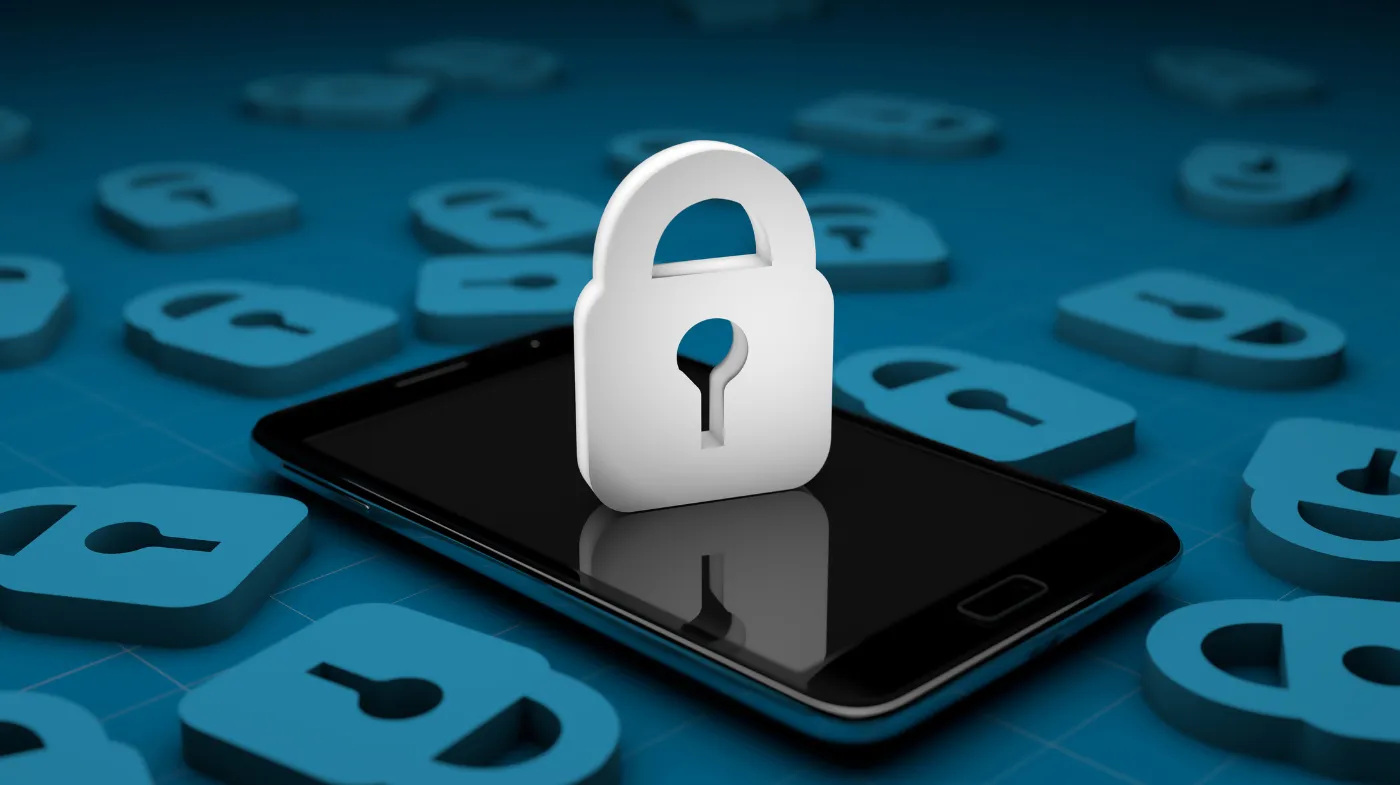
Your phone number is more than just digits; it’s a master key to your entire digital life.
When hackers compromise this crucial identifier, they can unlock your banking accounts, social media profiles, and personal communications within minutes.
Immediate action is your only defense against devastating identity theft and financial ruin. The moment you suspect a breach, call your carrier immediately to freeze your account.
Change all linked passwords within the first hour. Secure your banking apps before hackers can drain your accounts.
This comprehensive guide reveals these critical steps you must take within the first hour of discovery, from emergency carrier protocols to rapid account lockdowns.
You’ll discover how to implement bulletproof password strategies, recognize social engineering attacks, and build long-term defenses that protect your digital identity.
The difference between a minor inconvenience and a life-altering security breach often comes down to knowing exactly what to do when every second counts.
Quick Actions to Take When Your Phone Number Is Compromised
Time is your most valuable asset when dealing with a phone number hack. Swift action can mean the difference between minor inconvenience and major financial loss.
Contact Your Mobile Carrier Immediately
Call your mobile service provider as soon as you suspect unauthorized access. Most carriers have dedicated fraud departments available 24/7 to handle security breaches.
They can help you regain control of your account, lock your SIM card, and implement additional security measures.
Request that your carrier place a security freeze on your account to prevent unauthorized changes. This prevents hackers from transferring your number to another device or carrier without proper verification.
Secure Your SIM Card and Account
Enable SIM card protection by setting up a PIN or password that’s required for any account changes. This creates an additional barrier against SIM swapping attacks, where criminals transfer your number to their device.
Change your carrier account password immediately and enable two-factor authentication on your mobile account. This ensures that even if hackers have some of your information, they can’t easily access your carrier services.
Protecting Your Linked Accounts and Digital Identity

Your phone number serves as a key to numerous online accounts, making comprehensive security updates essential.
Change All Account Passwords
Update passwords for every account linked to your phone number, starting with the most critical ones like banking, email, and social media. This is where implementing a strong random password generator becomes crucial for your cybersecurity defense.
Focus on accounts that use your phone number for password recovery or two-factor authentication. These are the most vulnerable to exploitation and should be your top priority.
Update Two-Factor Authentication Settings
Switch from SMS-based 2FA to app-based authentication whenever possible. Applications like Google Authenticator or Authy are more secure than text messages, which can be intercepted by hackers.
For accounts that only offer SMS verification, consider temporarily disabling 2FA until you’ve secured your phone number, then re-enable it with updated security measures.
Financial Protection and Credit Monitoring
Phone number hacks often lead to identity theft and financial fraud, making immediate financial protection essential.
Monitor Your Financial Accounts
Check all bank and credit card statements for unauthorized transactions. Set up account alerts for any activity, no matter how small, as hackers often test with minor transactions before making larger ones.
Contact your financial institutions to inform them of the security breach. Many banks can place temporary holds on accounts or require additional verification for transactions.
Implement Credit Protection Measures
Place a credit freeze with all three major credit bureaus (Experian, Equifax, and TransUnion). This prevents new accounts from being opened in your name without your explicit consent.
Consider signing up for credit monitoring services that alert you to any changes in your credit report. Early detection of fraudulent accounts can minimize long-term damage.
Strengthening Your Password Security Strategy
A compromised phone number often exposes weaknesses in overall password security, making this an ideal time to overhaul your approach.
Avoid Common Password Mistakes
Many people fall victim to mistakes that weaken your password security without realizing it. Using easily guessable information like birthdays, names, or common words makes your accounts vulnerable to attacks.
Avoid password reuse across multiple accounts. If one account is compromised, unique passwords prevent hackers from accessing your other accounts using the same credentials.
Implement Advanced Password Practices
Use a secure password evaluator to assess the strength of your existing passwords. These tools can identify weak passwords that need immediate updating and help you understand what makes a password truly secure.
Consider using random password generators and cybersecurity tools to create complex, unique passwords for each account. These generators create passwords that are virtually impossible to guess or crack through brute force attacks.
Communication and Social Engineering Prevention

Hackers often use compromised phone numbers to target your contacts and gather additional information.
Alert Your Network
Inform friends, family, and colleagues that your phone number has been compromised. Warn them to be suspicious of any unusual messages or calls claiming to come from you.
Update your emergency contacts with trusted individuals and provide them with alternative ways to reach you if needed.
Recognize Social Engineering Attempts
Be skeptical of unexpected calls or messages asking for personal information, even if they appear to come from legitimate sources. Hackers often use compromised phone numbers to make their scams appear more credible.
Verify requests independently by contacting organizations through official channels rather than responding to unsolicited communications.
Long-Term Security Improvements
Once you’ve addressed the immediate threat, focus on building stronger defenses against future attacks.
Enhance Account Security
Review and update security questions for all your accounts. Avoid using information that could be easily found on social media or through public records.
Enable account monitoring features wherever available. Many services offer alerts for login attempts from new devices or unusual locations.
Regular Security Audits
Conduct monthly security reviews of your accounts and passwords. Regular maintenance helps identify potential vulnerabilities before they become serious problems.
Stay informed about new security threats and update your protection strategies accordingly. Cybersecurity is an evolving field that requires ongoing attention.
Reporting and Documentation
Proper documentation and reporting can help with recovery and prevent future incidents.
File Official Reports
Report the incident to the Federal Trade Commission through IdentityTheft.gov. This creates an official record and provides you with a personalized recovery plan.
Contact local law enforcement to file a police report. This documentation may be necessary for disputing fraudulent charges or accounts.
Document Everything
Keep detailed records of all communications with carriers, financial institutions, and other organizations. This documentation can be valuable for insurance claims or legal proceedings.
Save evidence of any fraudulent activity, including screenshots of unauthorized transactions or suspicious messages.
Frequently Asked Questions
How quickly should I act if my phone number is compromised?
If your phone number is compromised, immediate action is critical. Contact your mobile carrier within the first few hours of discovering the breach.
The faster you respond, the less damage hackers can inflict on your accounts, identity, and financial standing.
This incident also highlights the connection between random password generators and cybersecurity; strong, unpredictable passwords help prevent unauthorized access that often follows phone number hacks.
Can I prevent my phone number from being used in future hacks?
Yes, several preventive measures can significantly reduce your risk. Enable SIM card protection, use app-based two-factor authentication instead of SMS, and regularly update your carrier account security settings.
Additionally, be cautious about sharing your phone number online or with untrusted sources.
What’s the difference between a hacked phone and a compromised phone number?
A hacked phone means criminals have gained access to your physical device or its operating system.
A compromised phone number means they’re using your number for verification or communication without necessarily accessing your device. Both require immediate attention but involve different security measures.
Should I change my phone number after a hack?
Changing your phone number should be a last resort due to the inconvenience involved. First, try securing your existing number through your carrier and updating all linked accounts.
Only consider a new number if the harassment continues or if your carrier cannot adequately secure your current number.
Take Control of Your Digital Security Today
Your phone number hack doesn’t have to define your digital future. By taking swift, comprehensive action and implementing stronger security measures, you can not only recover from this incident but emerge with better protection than before.
The key lies in treating this experience as a wake-up call to strengthen your overall cybersecurity posture.
Remember, every step you take today builds a stronger defense against tomorrow’s threats. Your digital security is worth the investment of time and effort required to do it right.
